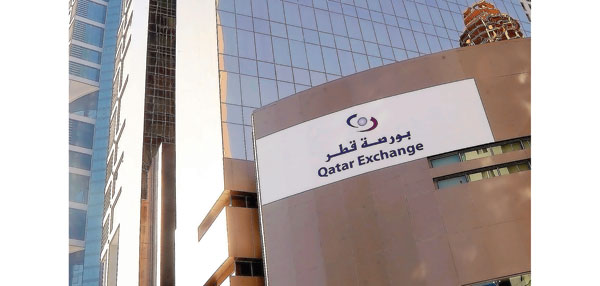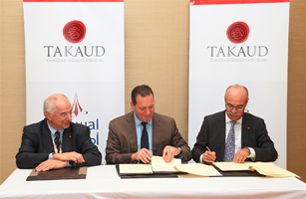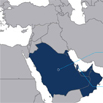Head of Asset Management on the cover of Peninsula Newspaper
Opec inaction hits Qatar stocks
December 2014

DOHA: Qatari bourse benchmark index plunged 4.28 percent to a five-month low yesterday as investors responded in panic to Opec’s decision not to cut oil production to boost sagging prices. Shares in all major sectors ended red. Energy and petrochemical-related stocks were among the worst-hit and banking and industries majors also got hammered before the market settled at 12,760 to end the month.
QNB and Industries Qatar, which have the highest weighting in the index, tumbled 5.02 percent and 4.41 percent, respectively. Mobile provider Vodafone Qatar, which announced its decision to scrap its bid to acquire Qatar National Broadband Network Company yesterday, tumbled 7.74 percent.
Qatar Exchange’s monthly data suggests the market was down by 5.47 percent compared to October, when it closed the month yesterday. A whopping QR30bn was swept away from the market in November, as market capitalisation fell by 4.14 percent to QR698bn yesterday.
Analysts told The Peninsula that the steady fall in oil prices will have a direct impact on corporate earnings and is likely to have a knock-on effect on local economy. “Compared with an average price per barrel of around $100 in the last five years, brent has fallen to $70 over last three months, and may slide further. As hydrocarbon revenues drive the bulk of government revenues and economies in the GCC, this drop will naturally have an impact on GDP and corporate profits,” Afa Boran, head of asset management at Amwal, said.
“At a lower oil price, the future earnings of oil and petrochemical-related companies will be directly impacted, whereas others may suffer a knock on effect as government spending will be more tightly managed”.
Property-related stocks were the worst hit. The realty sector plunged by 5.91 percent with Barwa tumbling 7.14 percent. Ezdan lost 5.72 percent, while the UDC fell by 4.25 percent. Of the 40 traded companies, just two advanced yesterday. About 14 million shares worth QR802m exchanged hands.
QE’s monthly data showed only 12 companies of the 43 listed companies ended higher in November, while 30 fell and one remained unchanged. Meanwhile, Reuters’ survey on regional fund asset managers showed Middle East fund expect to put money back into Gulf stock markets in coming months once the shock of the plunge in oil prices fades.
“They (Opec members) won’t meet again until June 2015…that means they want to see prices slide”, Reuters quoted an analyst as saying. However, he added yesterday’s panic sell-off could be an overreaction.
Oil’s plunge has become the main concern of Gulf investors in the last few weeks because they fear cheaper crude will force regional governments to cut spending and stifle the growth of local economies and corporate profits.
“I think that by the end of the day there will be buying opportunities and long-only institutions will increase their positions,” he said. Elsewhere, Dubai index fell 4.7 percent, while Abu Dhabi’s benchmark dropped 2.6 percent. Saudi Index was down by 4.8 percent as Oman’s bourse tumbled 6.2 percent and Kuwait fell 3.4 percent.
The Peninsula
-
05 February 2017
 Fahmi Alghussein appointed as new Qatar Chapter Head
Fahmi Alghussein appointed as new Qatar Chapter Head
Read more -
10 October 2016
 Trump factor to impact GCC market
Trump factor to impact GCC market
Read more -
9 October 2016
 Amwal and Takaud in deal to debut pension products...
Amwal and Takaud in deal to debut pension products...
Read more -
7 November 2016
 Amwal appoints Talal Samhouri as Head of Asset Management
Amwal appoints Talal Samhouri as Head of Asset Management
Read more -
3 November 2016
 Four Qataris ranked in Middle East magazine’s
Four Qataris ranked in Middle East magazine’s
Read more -
19 October 2016
 New Takaud And Amwal Partnership Expands
New Takaud And Amwal Partnership Expands
Read more -
01 March 2016
 A top down analysis of the real estate market Factors...
A top down analysis of the real estate market Factors...
Read more -
11 November 2015
 Amwal launches GCC fund with German firm
Amwal launches GCC fund with German firm
Read more -
09 March 2015
 Doha Bank plans to launch ETF on QE
Doha Bank plans to launch ETF on QE
Read more









